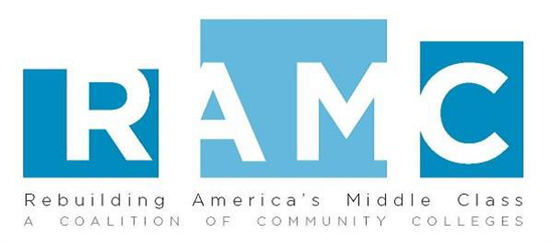The Committee on Education and the Workforce received the following letter from Rebuilding America’s Middle Class (RAMC) Board Chair and Dallas County Community College District Chancellor praising the PROSPER Act. Here is what Joe May had to say:
April 16, 2018
The Honorable Virginia Foxx
U.S. House Committee on Education and the Workforce
2176 Rayburn House Office Building
Washington, DC 20515
Dear Chairwoman Foxx,
On behalf of Rebuilding America’s Middle Class (RAMC), a coalition of community colleges, I am writing to expand upon RAMC’s views on the Promoting Real Opportunity, Success, and Prosperity through Education Reform (PROSPER) Act since its Committee passage. We appreciate the Committee’s efforts to reauthorize the Higher Education Act (HEA) and stand ready to work with the Committee as this legislation moves forward.
Representing over 130 colleges and 1.5 million students, RAMC is a coalition of State and individual community college systems from across the country. RAMC’s mission is to build a stronger, more competitive workforce, and therefore, a strong middle class by increasing access to and success in higher education.
As we stated in our previous letter to the Committee on this legislation, we believe that the PROSPER Act contains several provisions that would improve the ability of community colleges to provide a high-quality, low-cost education that prepares students to achieve their life and career goals. RAMC is pleased that the PROSPER Act would expand access to higher education for many adult and working students and help them to cost-effectively fund their education by allowing Pell grants to pay for short-term certificates tied to an industry-recognized credential.
The bill also would foster workforce opportunities through improvements to the Federal Work-Study program (FWS). Under the PROSPER Act, FWS is more targeted on high-need areas and aims to provide work-study opportunities to undergraduate students. The bill also ensures that FWS opportunities are more likely to meet the needs of students by expanding the prospect of working with businesses under the program. Both the undergraduate focus and the expansion of business work-study placements directly responds to the needs we see in our students every day.
In addition, the bill provides institutions new opportunities to expand apprenticeships and learning opportunities in the workplace. The PROSPER Act creates a new program that would support partnerships between Institutions of Higher Education (IHE)s and businesses to expand access to apprenticeships and earn-and-learn programs. As community college leaders, RAMC members are at the forefront of working to expand apprenticeships and create opportunities for students to earn while they learn.
The PROSPER Act also provides much needed flexibility to better support competency-based education (CBE). This approach would create additional postsecondary education opportunities that allow students to learn at their own pace and are more tailored to students’ career plans and goals. Under the PROSPER Act, CBE programs would allow students to reduce both time to degree and expense.
Finally, the bill provides a meaningful tool to our institution’s financial aid administrators as they seek to help students contain the amount of debt they accumulate. The PROSPER Act allows financial aid administrators to assign lower borrowing limits for students if such limits are applied across the board. This would provide administrators with the discretion they need to help students borrow responsibly and can go a long way to ensure students are not mortgaging their economic futures.
While we very much appreciate the inclusion of these provisions and believe the process for a reauthorization must move forward, we would welcome the opportunity to have further discussions with the Committee around certain issues. Specifically, we are concerned about the move toward program-focused loan repayment rates rather than cohort-focused default rates. We are also concerned about how the PROSPER Act’s return of Title IV funds provisions would financially impact our institutions and our ability to serve our students.
RAMC appreciates the opportunity to share our thoughts on the PROSPER Act and we continue to stand ready to work with you and provide assistance as Congress works to reauthorize the HEA. Thank you for considering our views on this important topic.
Sincerely,
Joe May
Board Chair, Rebuilding America’s Middle Class (RAMC)
Chancellor, Dallas County Community College District
Click here to read the letter.
To learn more about the PROSPER Act, click here.


